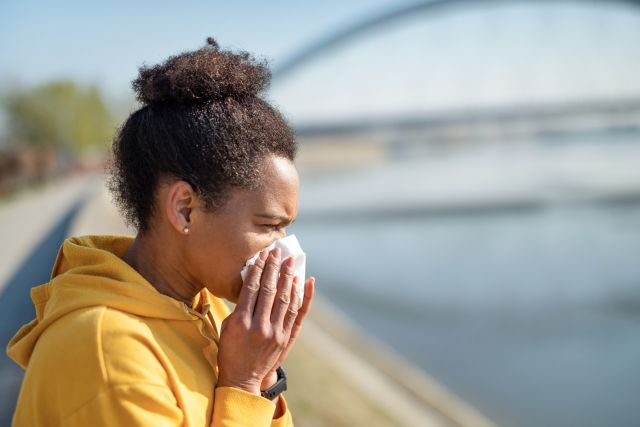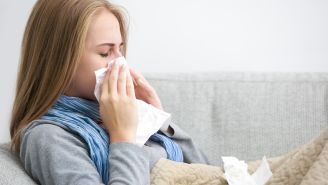Updated on April 9, 2024.
You may know someone who seems to get sick less often than other people. There are many reasons why this may be the case. Many things can affect the immune system and make it work better—or not as well. Things that have been shown to support the immune system: getting good sleep, eating nutritious foods, like fruits and vegetables, drinking enough water or other flruis, and managing stress. Research also suggests that exercise or getting more physical activity can help people stay healthy and avoid infections.
Exploring the link between fitness and illness
Exercise can’t prevent infection entirely. But some research suggests that people who work out regularly may have reduced chances of becoming sick. They may also experience shorter, less-severe symptoms compared to sedentary people, or people who don't get much movement.
In 2021, for example, the journal Sports Medicine published a meta-analysis (a review of many existing studies and their findings) looking at the effects of exercise on the immune systems of more than 400,000 people. Researchers found that those who regularly worked out had a 31 percent lower risk of infections, such as the flu or pneumonia, and a 37 percent lower chance of dying from an infection.
For another study published in 2011 in the British Journal of Sports Medicine, scientists followed about 1,000 adults for 12 weeks during cooler fall and winter months. Researchers found that people who said they exercised at least five times a week spent 43 percent less time being sick compared with those who reported exercising one day or not at all. The active group’s cold symptoms also tended to be about a third less severe.
Bolstered immunity
How does a good sweat affect immunity? In part, it has to do with aerobic exercise. Cardio activity is believed to ramp up blood levels of antibodies and white blood cells, both of which help protect against illness. But that’s not all. Getting physical activity:
- Can help expel bacteria from the lungs
- Causes a temporary rise in body temperature, which may help fight infection
- Reduces stress, which could lead to fewer colds
For health benefits, the federal government recommends that most healthy adults get at least 150 minutes of moderate-intensity aerobic exercise or 75 minutes of vigorous aerobic exercise per week. Moderate exercise can look like brisk walking, dancing, or any activity that raises your heart rate and breaks a sweat. Vigorous exercise includes running, swimming laps, and other activities during which you're breathing hard and fast enough that it's difficult to talk.
Once you begin working out, try to remain consistent with it over time. Though any amount of exercise can boost your health, regular physical activity imparts the most benefits.
Exercising with a cold
If you have a cold with no fever, mild-to-moderate exercise is considered safe and may even help open up your airways. In these cases, a less-intense workout is best to avoid worsening your condition. It’s always a good idea to prioritize hydration, as well. However, if you’re experiencing a fever, chest congestion, muscle aches, or upset stomach, you’re better off skipping workouts for a while.
COVID and exercise
In 2022, the British Journal of Sports Medicine published a review that linked consistent, moderate-intensity exercise to a reduced risk of infection, hospitalization, and death from COVID. While exercise isn’t recommended for people with an active fever or chest congestion, it may be an effective tool in minimizing COVID’s effects. This may be due to its anti-inflammatory benefits. Speak with your healthcare provider about whether it's the right decision for you.







